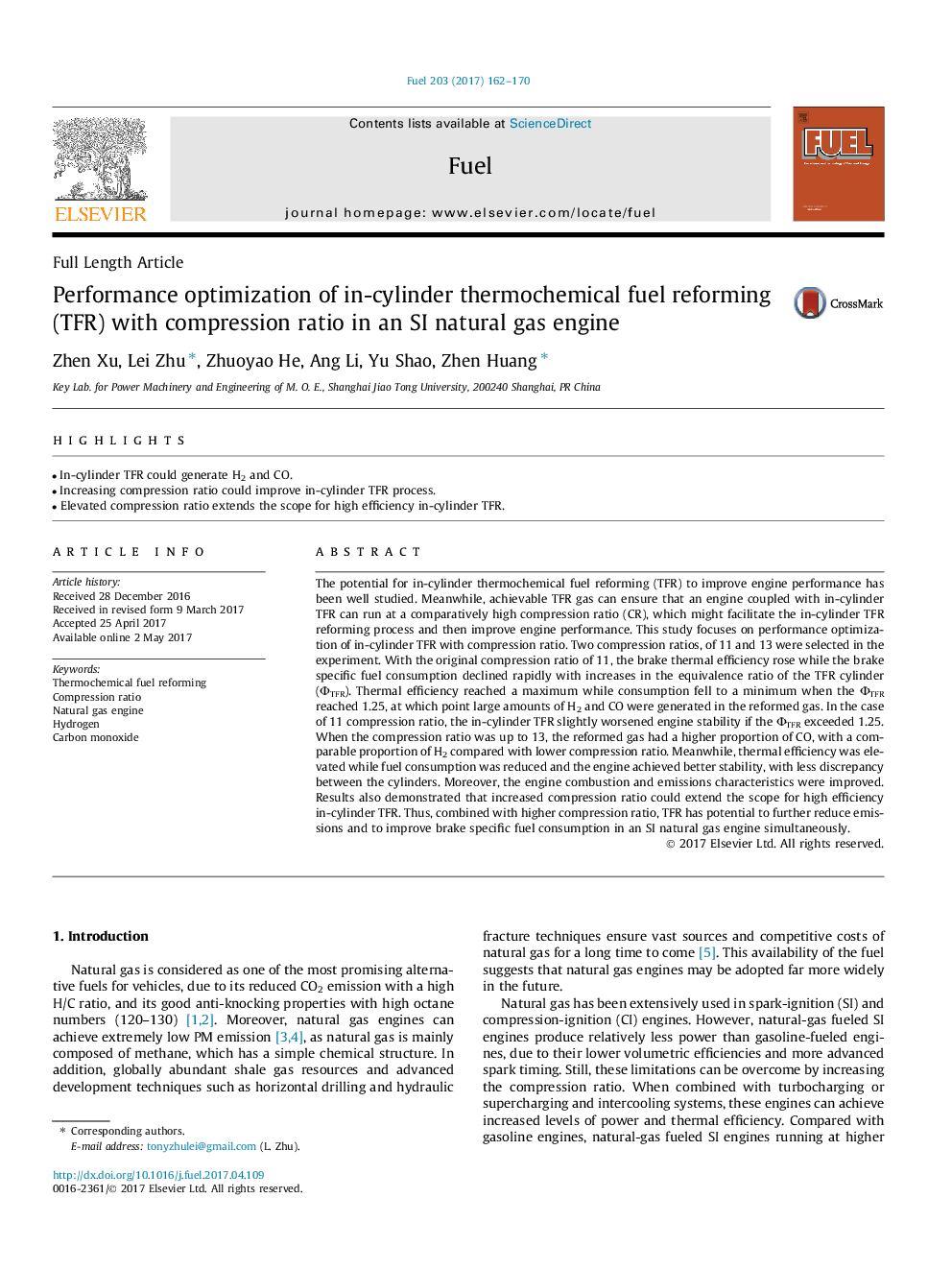| Article ID | Journal | Published Year | Pages | File Type |
|---|---|---|---|---|
| 6474280 | Fuel | 2017 | 9 Pages |
â¢In-cylinder TFR could generate H2 and CO.â¢Increasing compression ratio could improve in-cylinder TFR process.â¢Elevated compression ratio extends the scope for high efficiency in-cylinder TFR.
The potential for in-cylinder thermochemical fuel reforming (TFR) to improve engine performance has been well studied. Meanwhile, achievable TFR gas can ensure that an engine coupled with in-cylinder TFR can run at a comparatively high compression ratio (CR), which might facilitate the in-cylinder TFR reforming process and then improve engine performance. This study focuses on performance optimization of in-cylinder TFR with compression ratio. Two compression ratios, of 11 and 13 were selected in the experiment. With the original compression ratio of 11, the brake thermal efficiency rose while the brake specific fuel consumption declined rapidly with increases in the equivalence ratio of the TFR cylinder (ΦTFR). Thermal efficiency reached a maximum while consumption fell to a minimum when the ΦTFR reached 1.25, at which point large amounts of H2 and CO were generated in the reformed gas. In the case of 11 compression ratio, the in-cylinder TFR slightly worsened engine stability if the ΦTFR exceeded 1.25. When the compression ratio was up to 13, the reformed gas had a higher proportion of CO, with a comparable proportion of H2 compared with lower compression ratio. Meanwhile, thermal efficiency was elevated while fuel consumption was reduced and the engine achieved better stability, with less discrepancy between the cylinders. Moreover, the engine combustion and emissions characteristics were improved. Results also demonstrated that increased compression ratio could extend the scope for high efficiency in-cylinder TFR. Thus, combined with higher compression ratio, TFR has potential to further reduce emissions and to improve brake specific fuel consumption in an SI natural gas engine simultaneously.
